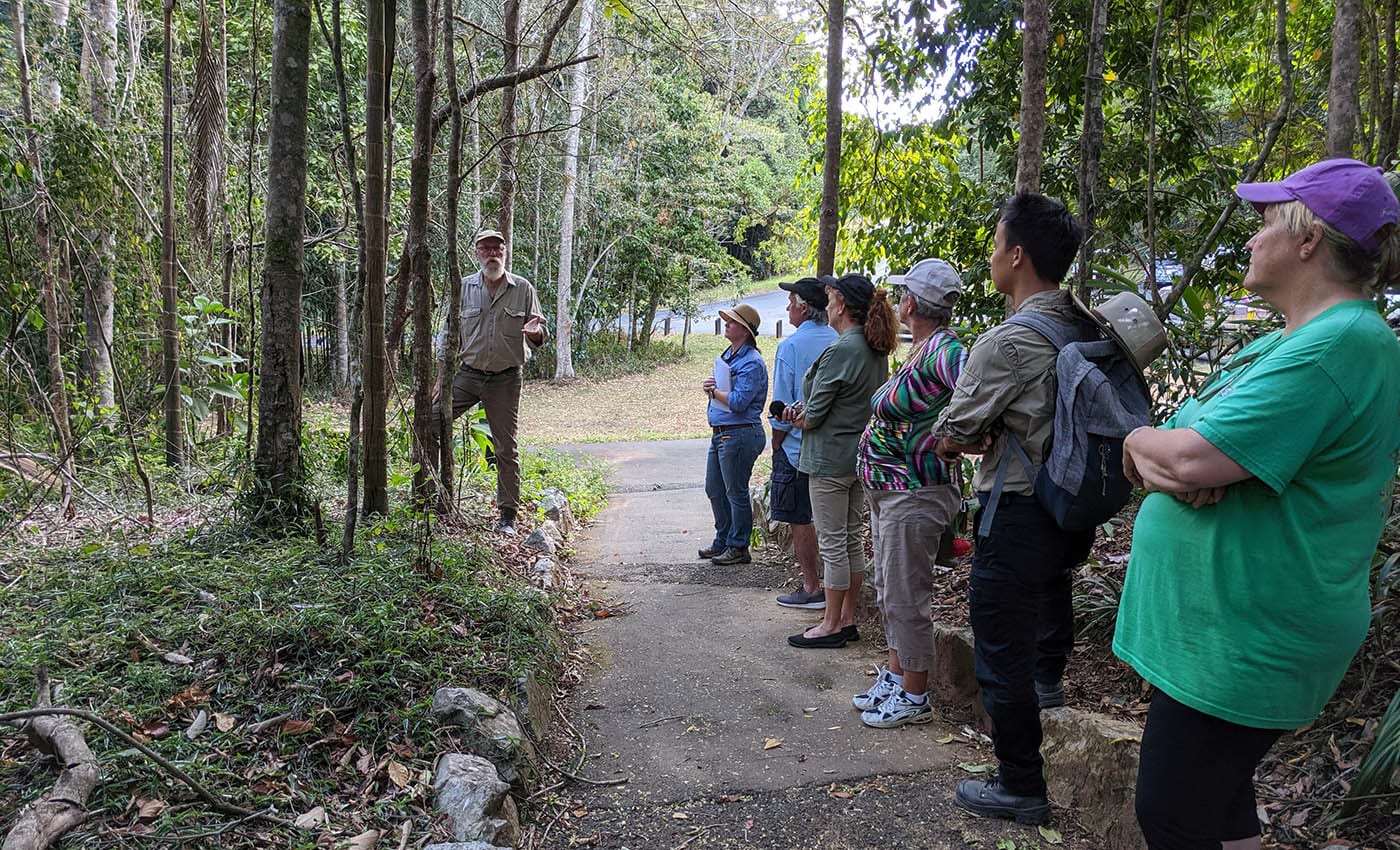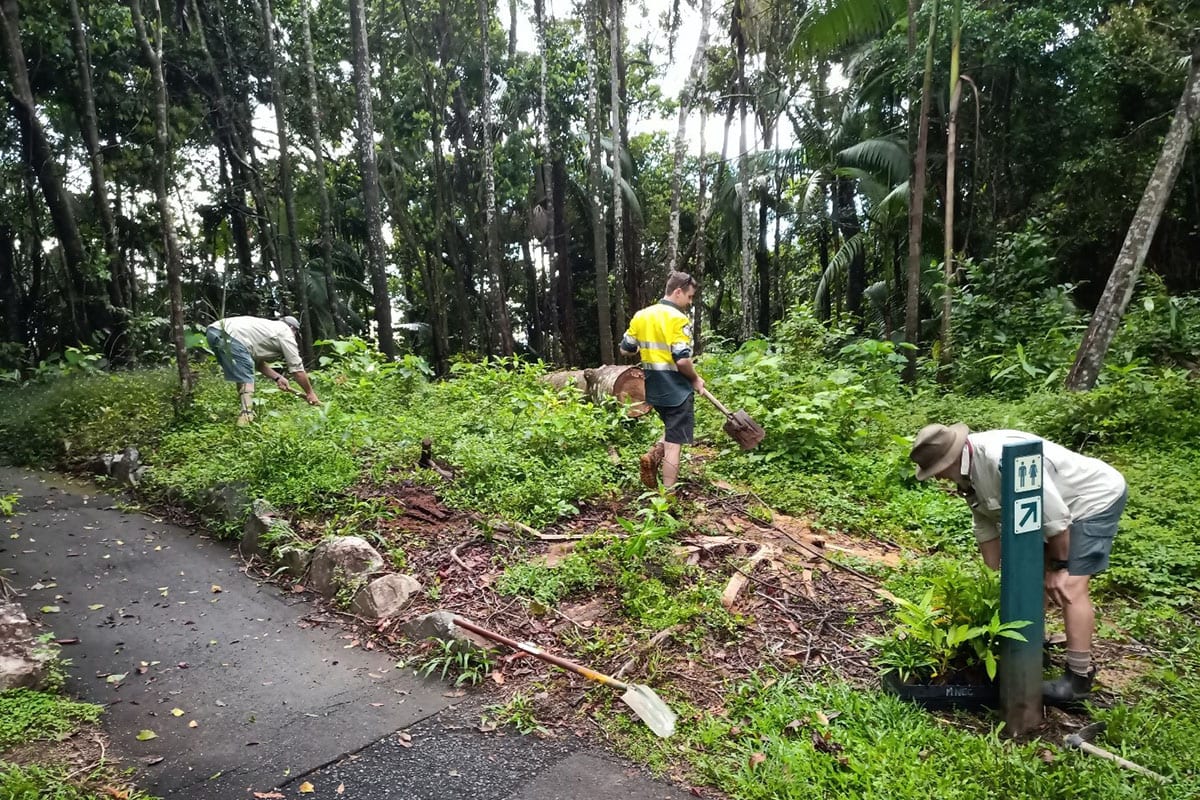
From little things, big things grow (back) in fire-damaged rainforest
SWATHES of burnt-out rainforest at Eungella are being transformed thanks to the dedication of the Eungella Rainforest Recovery Cluster group.
Seedlings, funded by the LDC project, are being planted to rehabilitate remnant rainforest destroyed in the 2018 bushfires.
LDC has enlisted the expertise of Pioneer Catchment & Landcare to work with the nine-member Eungella Rainforest Recovery Cluster group to complete a fire restoration and revegetation project.
The project includes revegetating rainforest destroyed by bushfires, and putting in place management plans to ensure properties recover from the bushfires and are protected from future threats.
The LDC project has purchased seedlings through The Mackay Nursery, and Pioneer Catchment and Landcare officer Peter Alden has been busy distributing them to landholders.
The cluster group is addressing several issues:
- how to correctly identify the difference between native regrowth and unwanted weeds within burnt forest;
- how to implement best management practices to tackle weeds;
- the dos and don’ts of clearing burnt vegetation;
- how to tackle erosion issues in areas impacted by fire;
- the possibility of using “seed bombs” to rehabilitate sections of burnt forest;
- using Vetiver grass to help reduce erosion risk on steep banks and scars; and
- the use of compost tea on pasture.
The second Eungella Rainforest Cluster Group field day is scheduled for Saturday, 23 May.
Peter Alden, Landcare Officer, Pioneer Catchment and Landcare Group addresses the field day participants.
QPWS Rangers from Eungella National Park planting project supplied native seedlings in a
weedy patch of burnt rainforest at the entrance of Sky Window Lookout.
Peer groups are an important part of the LDC goals
An important component of LDC is to foster peer groups in the BBB catchment that are self-directed, and supported by extension staff, to help deliver skills and knowledge.
The Eungella Rainforest Recovery Cluster group is one of six cluster groups.
To be successful, peer groups require openness, mutual respect for one another’s ideas, opinions and suggestions, and confidentiality, even if members don’t always agree.
In a peer group everything gets shared — what works, what doesn’t and why. Trust is key.


